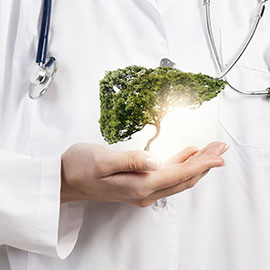Protecting the Liver,
the Silent Organ that Keeps the Body Going
Dr. Do Young-seok, Professor of Gastroenterology at Daejeon Eulji Medical Center
The liver is called a 'silent organ' because there are no symptoms until it is 70~80% destroyed. Also, even when there is a problem with the liver, it does not significantly disrupt its functions. So when the patient finally visits a doctor after experiencing certain health issues, it will be too late.
In time for the Liver Day (October 20), we sat down with Dr. Do Young-seok, Professor of Gastroenterology at Daejeon Eulji Medical Center, for information on liver disease.



 Interview With
Interview With
 Medical Technology
Medical Technology
 City & Culture
City & Culture
 Food & Travel
Food & Travel
 Hot Issue
Hot Issue

 Health & Wellness Tips
Health & Wellness Tips